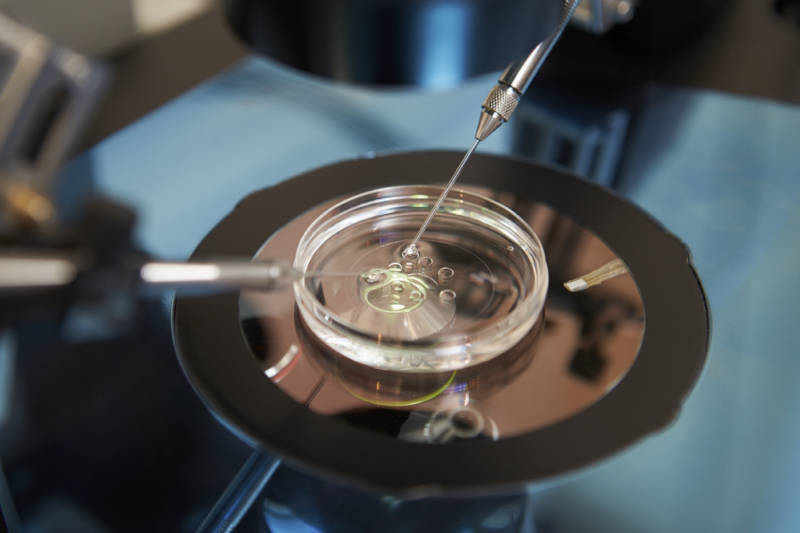Krasny: This ties in with in vitro fertilization [IVF] also being not as onerous as it has been in the past...
Greely: What I think is going to happen, we’ll be able to take some skin cells from anyone and turn them into any cell type. Make these into eggs or sperm and that is going to make IVF much easier, cheaper and less dangerous. [This] is going to lead to what I call easy PGD.
Krasny: You [can] decide, “Well, I want these traits” and it becomes a selective process.
Greely: Yes, I think we will see an increased and broad use embryo selection. I would be careful to set the time frame at 20-40 years. I think we’ll actually see a world where most babies born to people with good health coverage will be conceived in the lab. People will make about a hundred embryos, each will have its whole genome tested, and the parents will be [told], “…Tell us what you want to know and then tell us what embryo you want.”
Krasny: This could bring down healthcare costs and it is also good for same sex couples, isn't it?
Greely: Well, yes and maybe. I think it should bring down healthcare costs, and, in fact, one of the advantages to it is that it would be so beneficial for public health care costs that I think it would be provided for free. If it costs say, $10,000 to start a baby this way, 100 babies is a million dollars. If you avoid the birth of one baby with a serious genetic disease, you’ve saved 3-5 million dollars. The same sex issue, I think that’s going to work, but that’s another jump. That would be taking a skin cell… from a woman and turning it into a sperm. I think [it’s] probable, but that hasn’t been done yet.
Krasny: This is not the end of sex--because recreational sex will always be with us--it’s the end of sex as a way of procreating.
Greely: I think it will not be the complete end. I think people will still get pregnant the old-fashioned way, right, sometimes for religious reasons, sometimes for philosophical reasons, sometimes for romantic reasons, sometimes because they are teenagers and the backseat of the car is there.
Krasny: A lot of people talk about playing God, but before we get into that, there's the rubric of consumer eugenics. And there is a eugenics fear when we start talking about selection.
Greely: There certainly is. Eugenics is a slippery word, it means many things to different people. To some its state-enforced reproductive control, to some, and what we had was state-enforced sterilization, to some it’s any kind of reproductive choices, but those are different things. For me I think the coercion is much more important than the issues of selection. The concern about the state or the insurance company or someone else, forcing you to pick particular babies, worries me a lot more than having parents make choices, though that raises its own set of questions.
Krasny: What do you see as the biggest question here?
Greely: I worry about the dilemma of Republican legislators in very conservative states. They want to spend as little money as possible on Medicaid. I could imagine a state saying, "We're not going to pay for this via Medicaid," which would mean that the roughly 40-50 percent of babies born in that state who are paid for by Medicaid wouldn't get to go through this, and although they are not "super babies", adding another 10-20 percent health advantage to the babies of the rich over the babies of the poor is a bad thing.
Listen here to the full interview. Greely shares his thoughts on cost, socioeconomics, gene editing and the ethics of designer babies.

